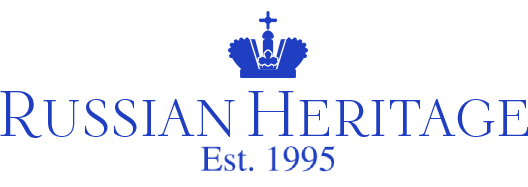The Origins of Russian Heritage
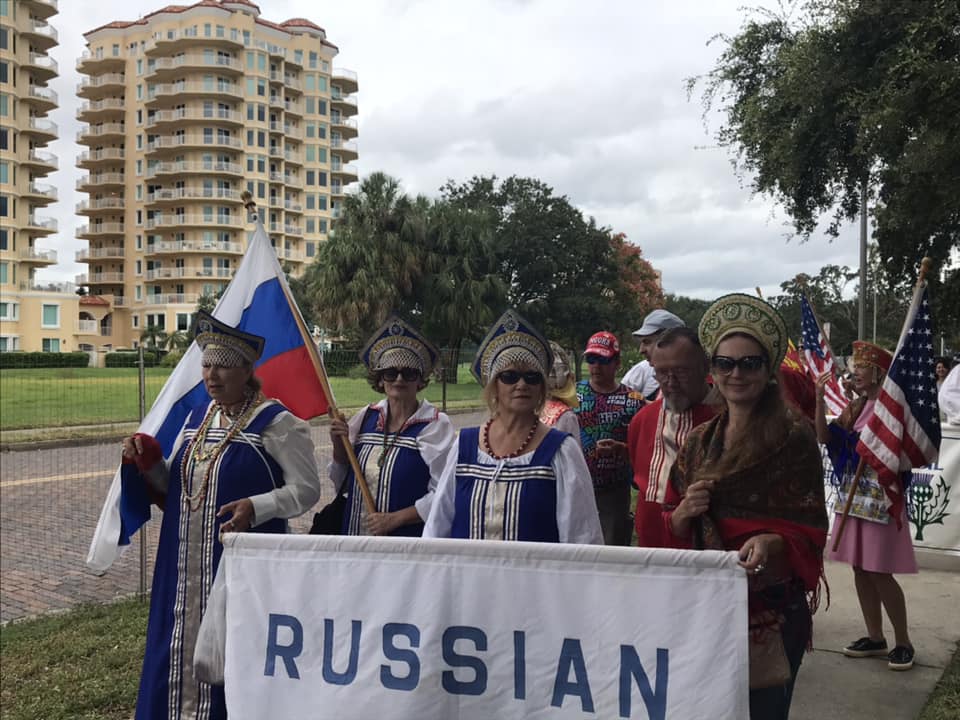
The year 1995 was a banner year for Russian Culture in the Tampa Bay area (which includes Saint Petersburg, Clearwater, Tampa) Florida. A blockbuster exhibit known as “Treasures of the Czars” came to the Florida International Museum from the Museums of the Kremlin in Moscow, Russia and the entire area began to find ways to connect with the theme of Russia and its cultural past. The Fine Arts Museum had a special exhibit on Russian art; the History Museum featured a temporary exhibit devoted to Peter Demens (Dementieff) (who is connected to the Founding of Saint Petersburg, Florida); and Eckerd College and USF had a special course offered on Russia, built around a public lecture series that brought world famous scholars to the campuses. These included Suzanne Massie (author, Land of the Firebird, 1980) [[http://suzannemassie.com/]] , Nicholas Riasanovsky (professor) [[https://en.wikipedia.org/wiki/Nicholas_V._Riasanovsky]], Richard Pipes (Academic) [[https://en.wikipedia.org/wiki/Richard_Pipes]]; poets like Yevgeny Yevtushenko [[http://www.evtushenko.net/]] and Joseph Brodsky [[https://en.wikipedia.org/wiki/Joseph_Brodsky]]; church leaders from Russia; and local specialists on Russia. The public schools developed units of study on Russia, arranged field trips to the Museum, and in some cases facilitated contacts with students in Russia. It was an exciting time for people who had a strong interest in Russia! Vera Espinola, worked at that time, for the city of Saint Petersburg Florida Mayors office, and was instrumental in pulling all the strings together to organize the Russian Heritage, along with Tatiana VonDessar, both of whom were active in the Russian American community of Saint Petersburg, Florida.
During the summer of 1995, after the “Treasures of the Czars” closed, a number of local residents, some of Russian background, and some who simply had a genuine interest in Russia and Russian culture, met to discuss ways to continue the momentum begun by the excitement of the exhibit. The result was the founding of cultural, educational, and philanthropic organization named Russian Heritage in 1996. According to our Articles of Incorporation, “The purpose of Russian Heritage is to preserve and promote Russian heritage, history, and culture, and to educate the general public through such activities as, but not limited to, social events, films festivals, artistic venues, and educational programs.”
Educational and Cultural Programs
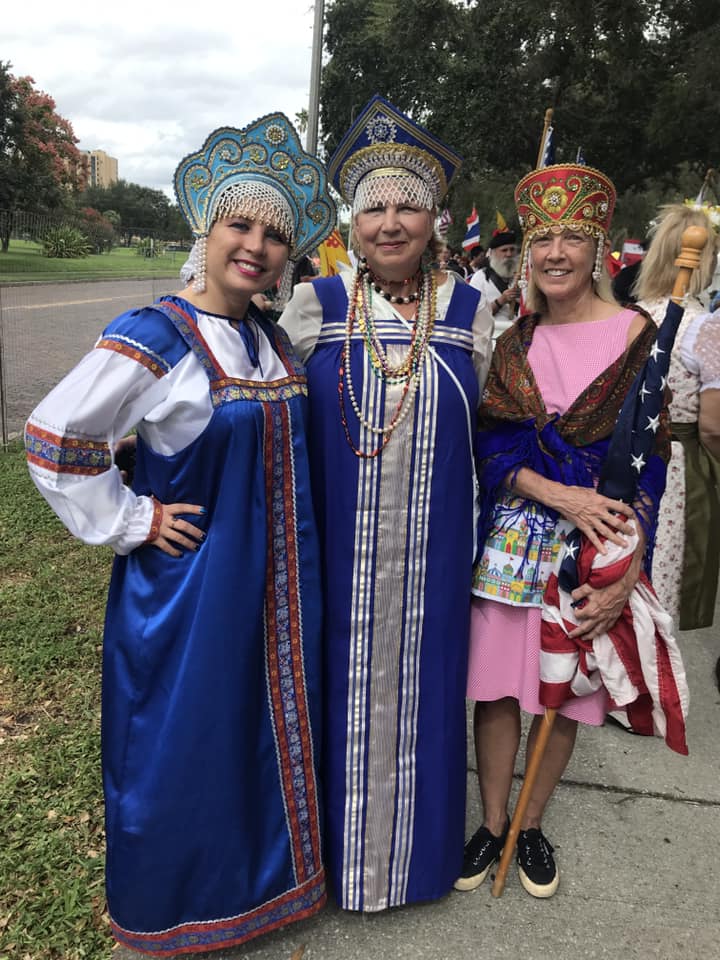
Russian Heritage from its beginnings was committed to supporting educational and cultural programs and making contributions to worthwhile charitable organizations that had a connection to Russian programs and Russian-American relations. This commitment often involved providing scholarships to American students traveling to Russia for educational purposes, and to Russian students coming to the Tampa Bay Area. These programs were most often coordinated with local educational institutions.
The Russian Heritage Scholarship Fund and Other Charitable Donations
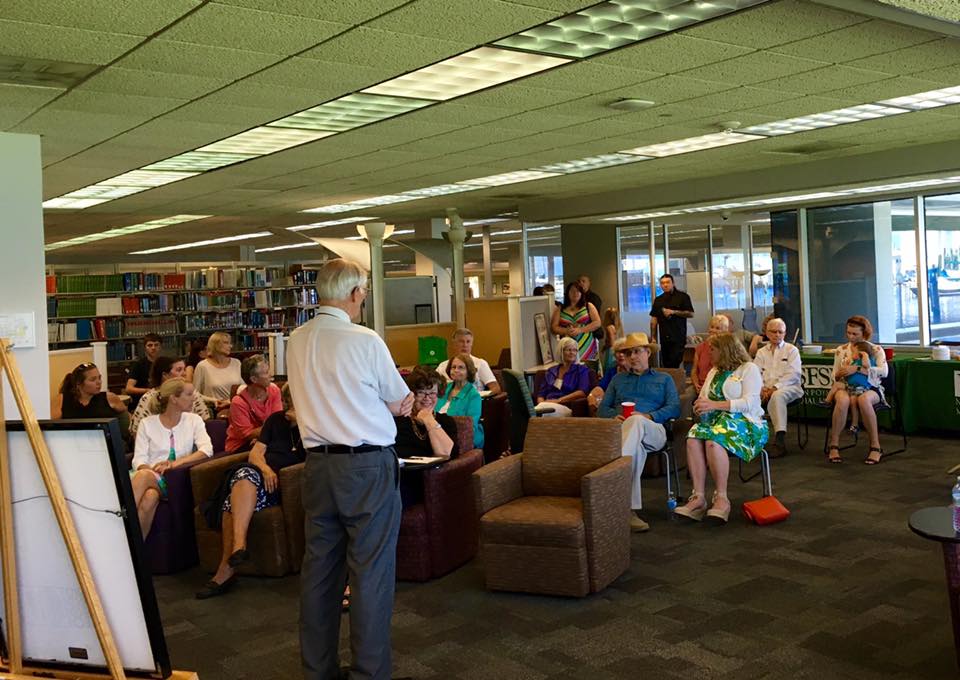
Details on the extensive programming for musical, literary, film, and historical events can be found on the “Newsletters Page” of the website. The following are some of the major events with references to the specific Newsletters. 1. Peter Demens and the relationship between the two St. Petersburgs: (April – May, 2000; March – May, 2003; August, 2016). 2. Celebrations of Russian Literature and Music: Pushkin (May – June, 1999 and October, 2006); Yevtushenko: (January – February, 2000 March, 2006, and October, 2017); Van Cliburn: (September – October, 2006). 3. The Commemoration of the End of the Siege of Leningrad and the End of WWII: (January – March, 2005; and February, 2019).
One of the highlights of each year’s programming has been the Winter Ball and the Celebration of the Old Russian New Year on or around January 13. We have also been active since 2003 representing the Russian experience at the SPIFFS Annual Folk Fairs in St. Petersburg.
Scholarship Funds for Russians coming to Tampa Bay

The program for students coming from Russia began with two girls who came from the Oak Grove School outside of Moscow that was interested in arranging a possible exchange program with American students to study at their school. Although nothing substantial developed in terms of a lasting exchange, Kate and Dasha visited several schools here, made numerous presentations, were interviewed in the local press, and attended the Old Russian New Year Gala in 2003 (February 2003).
In the second project of the next two years four students from St. Petersburg, Russia came to Tampa Bay after winning a city-wide competition (with more than 500 participants over the two years) to find the best high school students of English in a city of 5,000,000 inhabitants. This competition was organized by Tatiana Bobrovskaya. These students visited secondary and college-level schools, making presentations about life and education in Russia as well as meeting with Russian Heritage, and the mayor of St. Petersburg, Florida. (October 2003) and (November 2004).
A third source of scholarship students from St. Petersburg, Russia came through a special relationship with Special Music School connected to the St. Petersburg Conservatory. Five music students from this School were supported in three separate delegations. These students visited schools, performed in concerts, and met with community leaders. These performances included appearing before an Eckerd College Faculty Meeting, a St. Petersburg City Council Meeting, and at the Yevtushenko Poetry Reading at the Studio@620 (March 2004) and March 2006). Some income from their concerts helped offset the cost of the exchange.
Scholarship Funds for American Students Traveling to Russia
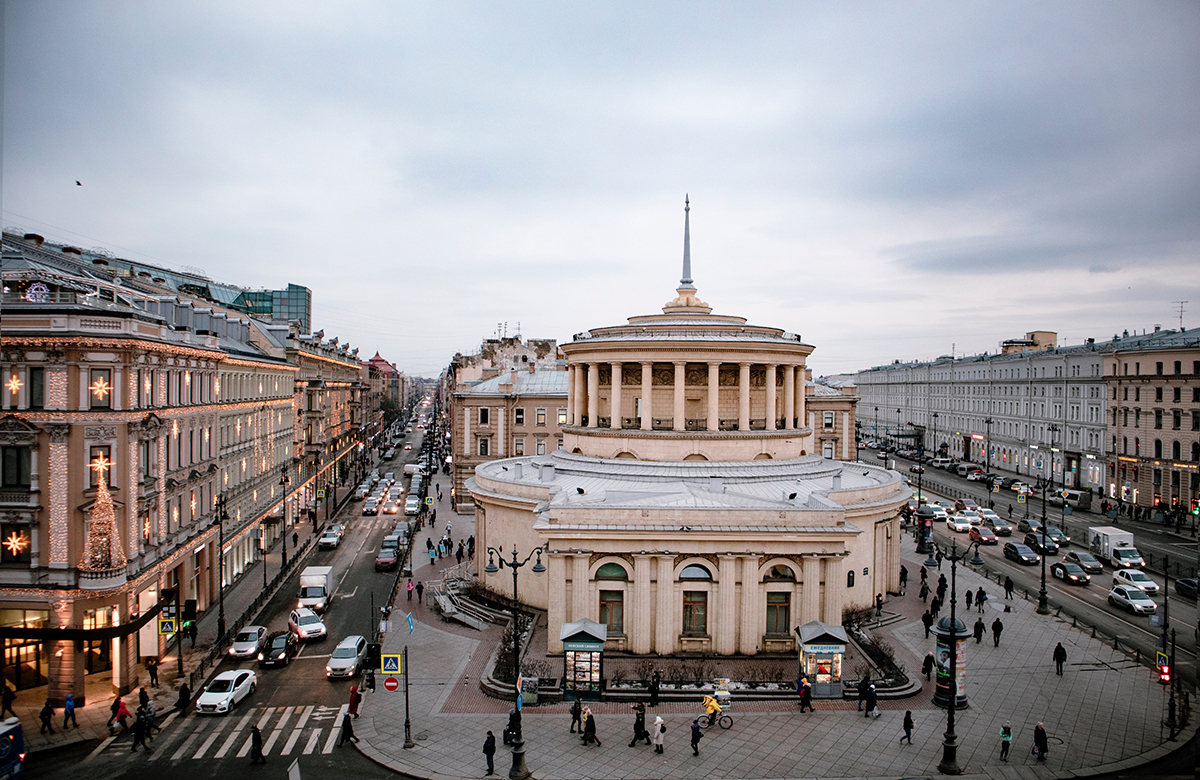
The grants for American students going to Russia ranged from $300 to $1,000, based on availability of funds and the number of candidates. Most recipients were Russian language students from Eckerd College (3 x $500); and 20 USF students (from $400 – $1,000): and 3 students from St. Petersburg College (from $300 – $1,000). (October 2005). Most of the participants from these programs made presentations to Russian Heritage and their respective schools as part of the grant. Others presented a written report based on their experiences.
The most elaborate experiment in supporting a student for study in Russia was an attempt to help pay the tuition for Nicholas White, an Honor Student in music from St. Petersburg College. He was interested in Russian music and Russian musical education and was encouraged by members of the RH Board to apply to the St. Petersburg Conservatory. He was accepted but without scholarship aid. RH offered a grant to enroll the student, and sought to raise private funds for paying the tuition (Fall 2007). Although the professors at the Conservatory encouraged the student to continue, he decided to not to do so.
Contributions to Charitable Causes
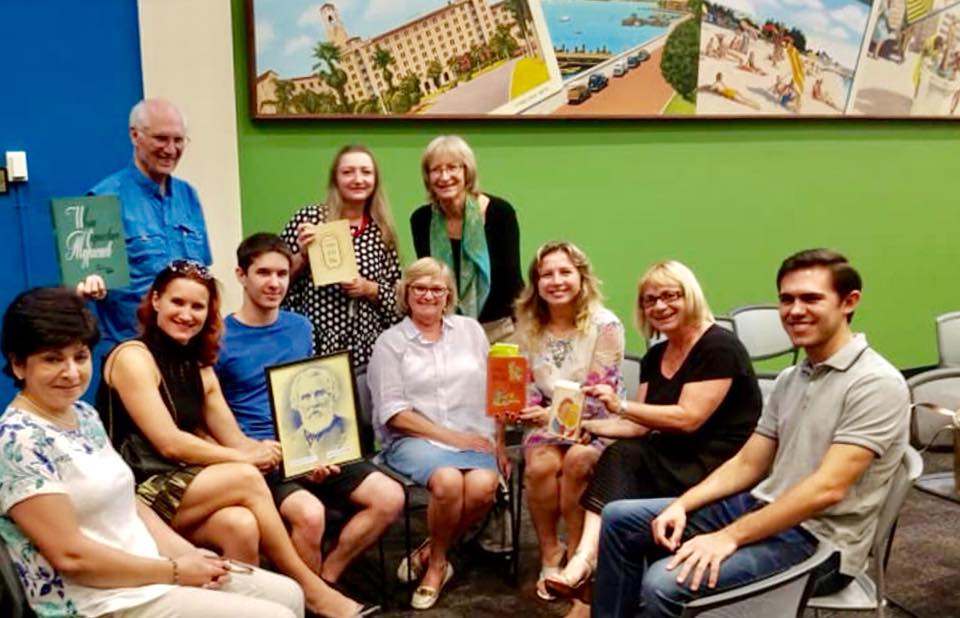
In addition to educational grants, Russian Heritage has given money to worthwhile causes approved by the board. In the early history of the organization RH made two grants to the Russian Cultural Center in Washington, D.C. We have also supported the Children’s Welfare Society; the New Jersey Public TV Station for programming on Russia; Beslan Relief Fund; A donation to Russian American Club for improvements to its facility.


